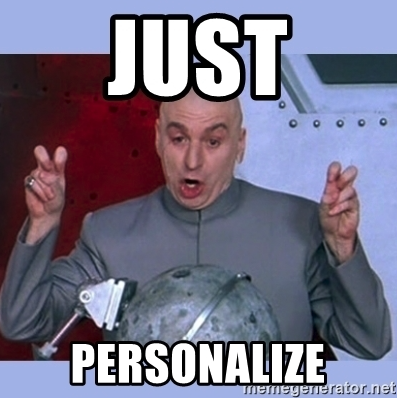Once upon a time, when you logged into your Facebook account, you could scroll through your feed and eventually reach the bottom. I know because I remember coming home from school each day and scrolling through all the things my friends and family had posted throughout the day until I was “caught up.”
But that doesn’t exist anymore.
Now, if you login to Facebook (or any other social media account, for that matter) you start scrolling through your feed and just keep on scrolling forever.

This isn’t because your friends and family are posting more things than you can keep up with, but because Facebook (and its parent company, Meta) has changed the way it delivers information to you. Instead of just showing you what your friends have posted, it’ll show you advertisements for products and brands you might enjoy (which are based both on what you’ve “liked” previously and on cookies). Local news articles will pop up in your feed, as well as events happening near you. It’s all in the name of “creating a personalized experience.” And whether we like it or not, we all agreed to it when we signed the Terms and Conditions.
Oh yes, as much as we’d like to blame Meta for its addictive properties and the mental health problems it creates (and don’t get me wrong, the Facebook Files show that they’re plenty to blame), we did, in fact, volunteer for this.

First, Facebook—or whatever social media platform you’re using—promises to provide a personalized experience for you. They promise to connect you with people and organizations you care about and to help you discover content, products and services that may interest you. They even empower you to express yourself and communicate about what matters to you. (Seriously, all these points are taken word from word from Facebook’s Terms of Service.)
But why stop there? Next, Facebook promises to use and develop advanced technologies to provide “safe” services for everyone. They commit to researching ways to make their services better and provide “consistent and seamless experiences” across all their products. How? you may ask. Through the data they collect from us.
Facebook’s Data Policy clearly states that they collect data on pretty much everything we do on their website and products. So if you like a news article, contact a venue via their Facebook page or even accept a friend request, Facebook can then use that information to customize what you see when you start scrolling through your feed.
Which is exactly why you might see the article your friend mentioned when you got coffee with her the very next day. If she found the article on Facebook and you’re friends on Facebook, then the social media platform can deduce that you might also like the article. It’s why your dad sees an ad for the restaurant you bought him a gift card for before he even receives it. Because if you purchased it online without clearing your cookies before and after, Facebook was given the information. Then, because you’re friends with your dad, they can show him an ad for the same place because they figure you have similar palates.
Again, Facebook claims this is to provide a more personalized experience. And there’s some truth to that. But at the end of the day, it’s to make money. Sure, they might not be selling your data, but by their own admission, they’re using the information they collect to sell advertisements.

So how does this all apply to the infinite scroll feature?
Well, when you pause while scrolling to read a friend’s post or watch a news video or look at a funny meme, Facebook takes note. They’ll start to show you more posts about similar topics to your friend’s post, more videos from that news source, more memes with the same hashtags. And everything they show you is either meant to collect data—to see if you’re interested in what they’re showing you—or to exploit that data in the form of directed advertising.
Facebook will pretty much do whatever it takes to keep their website tab open, to get you to react, comment or share, and to continue scrolling. Because the longer you stay on their app, the more advertised products or articles you click on, the more money in their pockets. And the best way to accomplish that is to create a never-ending scroll of information at your fingertips.







One Response
-Everyone at my school scrolls endlessly on TikTok and now I understand why that is. It’s the companies way to make money. It’s sad that people can’t talk face to face anymore. I really miss the elementary school years.